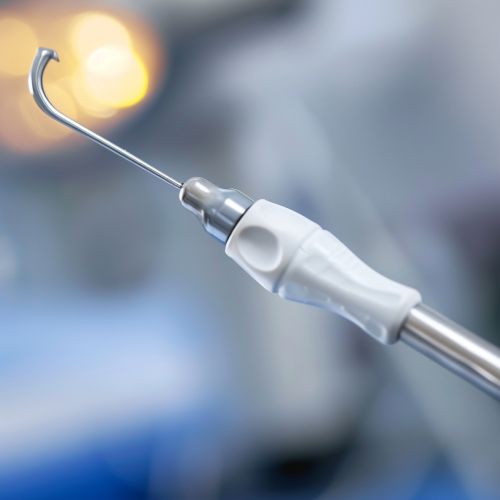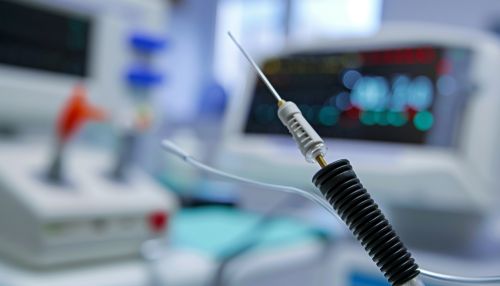Medical Electrode
Overview
A medical electrode is a type of electrode used in the field of medicine for various purposes. It is a device that can conduct electrical currents and is used to interface with biological tissue, specifically to pick up or transmit electrical signals from or to the body. Medical electrodes are a crucial component in a wide range of medical applications, from diagnostic procedures to therapeutic treatments.
Types of Medical Electrodes
There are several types of medical electrodes, each designed for specific applications and uses. These include:
- Electrocardiography (ECG) Electrodes: These are used to measure the electrical activity of the heart. They are typically placed on the skin of the chest, arms, and legs during an ECG test.
- Electroencephalography (EEG) Electrodes: These are used to measure the electrical activity of the brain. They are usually placed on the scalp during an EEG test.
- Electromyography (EMG) Electrodes: These are used to measure the electrical activity of muscles. They can be placed on the skin or inserted into the muscle during an EMG test.
- Electroretinography (ERG) Electrodes: These are used to measure the electrical activity of the retina. They are typically placed on the cornea or the skin around the eye during an ERG test.
- Transcutaneous Electrical Nerve Stimulation (TENS) Electrodes: These are used to deliver electrical stimulation to nerves for pain relief. They are typically placed on the skin over the area of pain.
- Pacemaker Electrodes: These are used to deliver electrical stimulation to the heart to regulate its rhythm. They are typically implanted in the heart during a surgical procedure.


Materials and Design
Medical electrodes are typically made from conductive materials such as silver, silver chloride, gold, stainless steel, or carbon. These materials are chosen for their ability to conduct electricity and their biocompatibility, meaning they are safe to use on or in the human body.
The design of a medical electrode depends on its intended use. For example, ECG electrodes are typically designed to be flexible and adhesive so they can be easily attached to the skin. In contrast, pacemaker electrodes are designed to be rigid and durable so they can be implanted in the heart.
Applications
Medical electrodes are used in a wide range of applications in the field of medicine. These include:
- Diagnostic Procedures: Medical electrodes are used in various diagnostic tests to measure the electrical activity of different parts of the body. These tests can help diagnose a wide range of conditions, from heart disease to neurological disorders.
- Therapeutic Treatments: Medical electrodes are used in various treatments to deliver electrical stimulation to different parts of the body. These treatments can help manage a wide range of conditions, from chronic pain to cardiac arrhythmias.
- Research: Medical electrodes are used in research to study the electrical activity of different parts of the body. This research can help advance our understanding of the human body and develop new treatments for various conditions.
Challenges and Future Directions
Despite their widespread use, medical electrodes face several challenges. These include issues related to biocompatibility, signal quality, and patient comfort. Researchers are continually working to develop new materials and designs to address these challenges.
Furthermore, with the advancement of technology, the future of medical electrodes looks promising. Potential developments include the use of nanotechnology to create smaller, more sensitive electrodes, and the integration of medical electrodes with wireless technology for remote monitoring and treatment.
